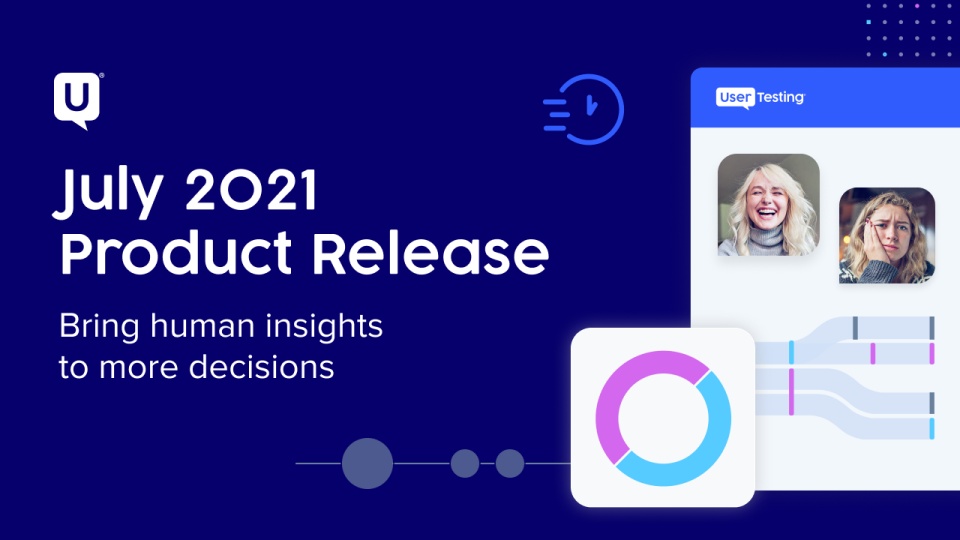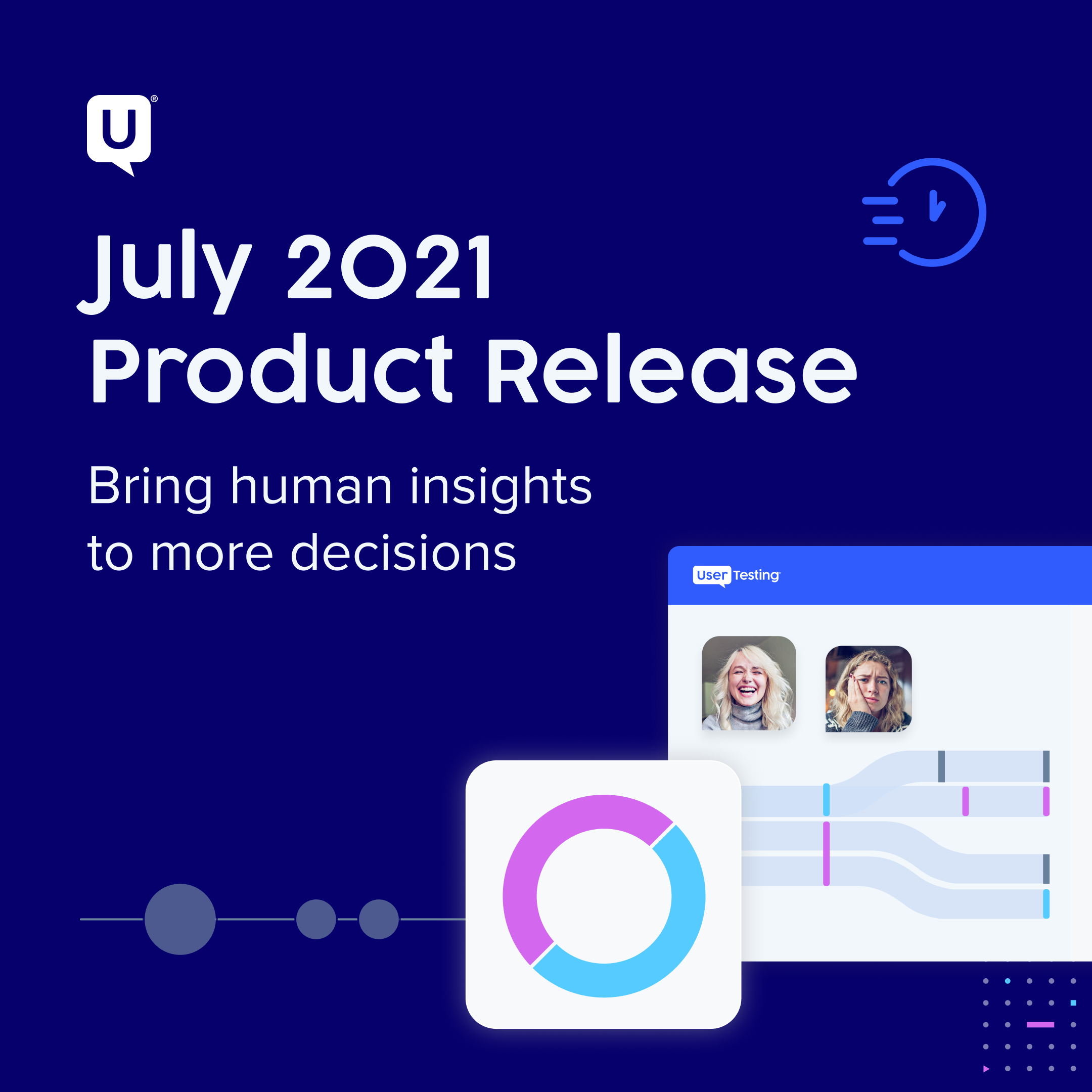
Bringing human insights to more decisions: July 2021 Product Release

We believe all teams should build empathy for their customers and bring real human insight into any decision. To further this mission, we’re excited to announce our latest quarterly release which includes new features to help your teams gather more targeted feedback, present custom confidentiality terms when gathering feedback, and save time collecting insights through the power of machine learning.
Included in this July 2021 Product Release are the following features and updates:
- Short test: quickly collect customer perspectives by asking a few targeted questions that return five-minute video responses
- Custom confidentiality terms: present custom confidentiality terms directly within the platform with an improved and streamlined experience
- Sentiment path: evaluate reactions to web-based experiences with a visualization that automatically highlights positive and negative moments from participant feedback
- Intent path beta: explore patterns and anomalies in feedback with a visualization that summarizes behavior on web-based experiences
- Keyword map beta: understand common themes in feedback from a verbal task with a visual summary of the most frequently used adjectives

Quickly validate any decision with short, five-minute video responses
When it comes to getting fast feedback, there’s more to it than simply launching a test. From building your test plan to waiting for results to analyzing those results, sometimes fast feedback doesn’t seem so fast.
Now, with our short test feature, you can speed up your overall process by asking a few targeted questions that return five-minute video responses. This new type of test is perfect for any team conducting short preference or A/B tests, first impressions, benchmarking, testing concepts, and more. You can even use our short test templates to empower less experienced teams.

This feature makes it easy for your team to validate decisions, and more importantly, save time doing it. For more information on short tests, our new templates, and how to get started, you can read the deep dive, here.
Present custom terms when gathering feedback on early concepts, assets and unreleased experiences
We’re committed to safeguarding confidential and sensitive information and require individuals to agree with terms that obligate them to protect any confidential information that they may view and access while completing tests created by customers.
With this release, we’re introducing an improved and streamlined experience for presenting custom confidentiality terms directly within the platform—offering an added layer of confidentiality awareness for customers who want to get feedback from contributors about sensitive information. Companies can now present custom terms directly to contributors before they even see the test or answer a single question.
This feature helps companies—from early-stage startups to large enterprises—remind contributors of important obligations when they are reviewing sensitive assets such as early concepts, designs, and prototypes.

For more information on this feature or to review our Contributor Terms of Service, please see our Knowledgebase article.
Save time evaluating and summarizing feedback using our machine learning models
Throughout the year, we’ve focused on helping you shorten your time to insight through new features built on our proprietary machine learning models. To date, we’ve launched click maps, interactive path flows, and smart tags, all focused on helping you better understand your feedback.
Building on our latest updates and further advancing your ability to quickly perform post-test analysis, we’re excited to announce three new features.
Sentiment path and intent path (BETA)
Layered directly on top of our Interactive Path Flow feature, the addition of sentiment path and intent path allows you to see the sentiment participants expressed and their intent when going from one screen to another. Rather than watching videos one after another, you can focus on moments with more positive or negative sentiment, or just on areas with unexpected behavioral patterns.
With sentiment path, you can see exactly where participants expressed something positive or negative about their experience.

On the other hand, intent path shows you what participants were trying to do when navigating from one screen to another. This allows you to discover which participants’ actions and choices—for instance, whether they browse or search, or if they add something to their favorites—correspond to task success, shorter or longer paths, and more.

For more information about sentiment path and intent path, you can read the deep dive, here.
Keyword map (BETA)
We’re excited to introduce to you keyword map—a new feature design to help you save time when evaluating verbal task responses within the Human Insight Platform. Keyword map uses machine learning algorithms to visually summarize the most frequently used adjectives within a verbal response, and then sort them based on overall sentiment.

This can be especially useful when you’re looking to identify areas of improvement, delight, confusion, and more when analyzing verbal responses. This feature also empowers you to increase the likelihood of identifying actionable insights within your qualitative test results much more quickly than manually listening to and tagging videos.
For more information on this feature and how to use them, check out our Knowledgebase article.
Stay up-to-date with our product releases
We release product updates on a quarterly basis. So, if you’d like a full recap of our April 2021 Product Release from last quarter, you can view our blog. As always, we’re excited to help you bring real human insight into every decision.
To hear more about our newest capabilities, please join our July 2021 Product Release webinar.
And if you’d like to learn more about any of these features, contact your account team or reach out to us here.
In this Article






